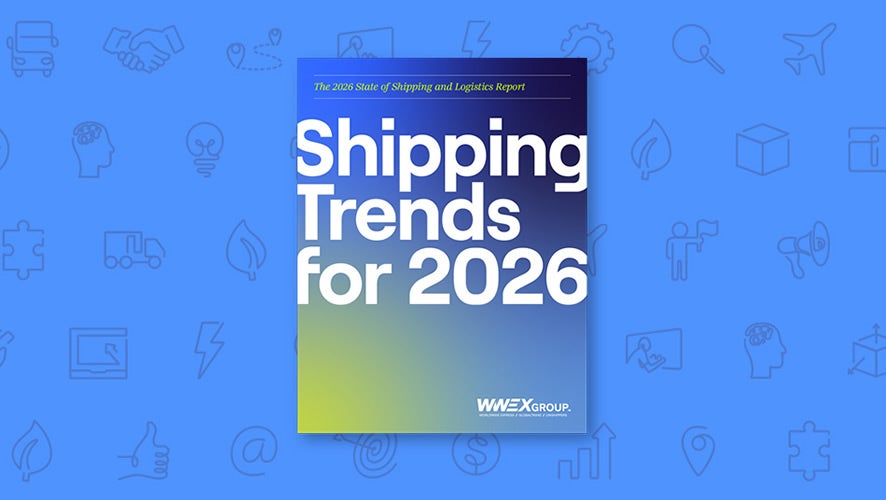BLOG POST
How To Forecast Freight Fuel Surcharges for Budget Planning

Reading Time: 4 minutes
Managing shipping costs is hard work - but when freight fuel surcharges fluctuate, budgeting becomes even more challenging. These extra fees help carriers offset rising diesel costs, but they can swing wildly from one week to the next.
To stay ahead, you need a clear strategy for understanding and forecasting these charges. In this blog, we'll walk you through how to calculate fuel surcharges on freight, track pricing trends, audit your shipping bills, and work with the right 3PL partner to keep your costs under control.
What is a fuel surcharge for freight shipping and why does it change?
Most less-than-truckload (LTL) freight and truckload (TL) shipping providers add a surcharge for fuel to your invoice. This fuel surcharge helps offset volatile diesel fuel prices and protect carrier profitability from inflation, supply chain disruptions, regulatory changes and unpredictable tariffs. But there's no one-size-fits-all approach - each carrier sets their own rate structure and frequency for updates.
Some carriers base their fuel surcharge forecast on the national average price of diesel fuel published by the U.S. Energy Information Administration (EIA). Others might tie it to specific regions or update it weekly, monthly or even quarterly. The most common calculation is:
Fuel Surcharge = (Current Fuel Price - Base Fuel Price) ÷ Vehicle MPG × Miles Traveled
But some carriers apply a percentage of total shipping cost instead. With so many variations, you can't afford to guess. That's why a fuel surcharge strategy is crucial for shippers.
How do I find out how my carrier calculates their surcharge for fuel?
Start by asking. Don't assume all carriers use the same formula. Each one has its own approach to how they calculate their fuel surcharge, and many publish their methodology online.
But don't stop at what's posted. Speak directly to a rep. You may discover contract pricing options or discounts that don't appear on public rate charts. And if you're working with a third-party logistics (3PL) provider like Worldwide Express, you gain even more leverage. We negotiate better rates on your behalf by bundling volume across thousands of shippers.
Ask your carriers these questions:
- How often do you update your fuel surcharge?
- What's your base fuel price?
- How is mileage or shipment weight factored in?
- Can we get discounted or fixed-rate fuel surcharge pricing?
Getting clarity now helps you avoid surprises later.
Why do diesel fuel prices change so much?
Fuel prices don't just rise and fall randomly - they react to global events, supply and demand, and long-term market trends. While it's impossible to predict exact prices, understanding the major forces behind fuel volatility helps you make smarter projections.
Diesel prices tend to rise when:
- There's economic uncertainty
- Supply chains tighten or are disrupted (e.g., natural disasters, wars or sanctions)
- Demand spikes due to peak shipping seasons
Historically, massive diesel spikes happened in:
- 2008 - up 15% in one month
- 2022 - up 26.6% in one month
But those are exceptions. Most months see a change of just 1-2%. Keeping an eye on the EIA's fuel price index and news coverage about oil markets can help you make an educated fuel surcharge forecast.
At Worldwide Express, our account teams monitor trends and advise customers on how to adjust budgets accordingly. We help make the unpredictable more manageable.
Can reviewing past shipping invoices help me predict fuel surcharges?
Yes - conducting a freight bill audit is one of the most effective ways to understand how freight fuel surcharges have impacted your budget. This means reviewing past shipping invoices to identify:
- What percentage of your total costs went to fuel surcharges
- Which carriers charged more (or less)
- Whether surcharge fees aligned with published rates
- Any billing discrepancies or errors
A freight audit doesn't just improve forecasting - it uncovers cost-saving opportunities. If a carrier misapplied their own formula or you misunderstood how they calculated charges, you can flag it, fix it and adjust future expectations.
Plus, if you use multiple freight carriers, comparing past invoices gives you negotiating power. If Carrier A consistently charges less than Carrier B for the same routes, use that data in your next rate negotiation.
What if I don't have the time or tools to audit fuel surcharges?
That's where working with a 3PL partner like Worldwide Express can make a real impact. We analyze your shipping history, current carrier relationships and invoice trends to create a clearer picture of your freight fuel surcharge exposure.
Here's what we offer:
- Freight audits to assess current and historical surcharge trends
- Side-by-side cost comparisons across your carriers
- Insights into potential savings through consolidation or route optimization
- Recommendations to minimize fuel surcharges and other freight accessorial fees
We'll even help you project your fuel surcharge budget for the next quarter or fiscal year based on market data and carrier trends.
How can I minimize freight fuel surcharges?
You can't avoid fuel surcharges entirely, but you can take steps to reduce their impact. Here's a recap of the information we have provided:
1. Consolidate shipments
Fewer, fuller shipments = lower surcharge per unit shipped. This works for both LTL freight and TL shipping.
2. Choose efficient routes
Optimize routing to reduce mileage and idle time. A 3PL can help with real-time visibility and smart planning tools.
3. Audit regularly
Look for invoice errors and monitor fuel surcharge trends. Even small discrepancies add up fast.
4. Negotiate smarter
Use competitive data to negotiate better terms or fixed-rate contracts with carriers.
5. Use a 3PL
Gain access to discounted rates, shipping volume leverage and expert consulting to improve long-term strategy with 3PL expertise.
Why should I work with Worldwide Express?
Managing freight fuel surcharges in-house can drain time and resources. Worldwide Express acts as your advocate, helping you budget smarter, ship more efficiently and uncover savings across your supply chain.
When you partner with Worldwide Express, you get:
- Access to deeply discounted carrier rates
- Hands-on consulting for fuel and freight cost planning
- Audits and data analysis to optimize budgeting
- Real-time tools for tracking fuel surcharge changes
- A team that knows LTL freight, TL shipping and everything in between
Ready to take control of fuel surcharges?
Figuring fuel surcharge costs doesn't have to be a mystery. With the right strategy - and the right partner - you can forecast better, budget smarter and minimize the impact on your bottom line.
For more than 30 years, Worldwide Express has provided shipping stability, industry expertise and innovative solutions to businesses of all sizes. Now, as part of the WWEX Group of family brands, we are one of the nation's largest third-party logistics (3PL) companies and provide a diverse suite of shipping solutions including LTL, TL, international freight and more.
We invest broadly in customer-facing technology solutions, industry analysis, account support and personnel development, allowing us to provide both short- and long-term stability for shippers.
Ready to learn how Worldwide Express can streamline your freight shipping and help you forecast fuel surcharges? Reach out for a free consultation with us today!





